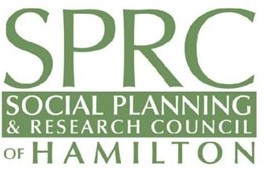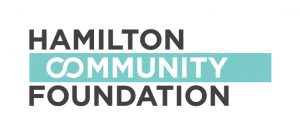Acknowledgements, appreciation, applause
At the centre of Transforming Stories, Driving Change are the people — advocates for themselves and their communities — who over the past four years have imagined and performed what a better Hamilton might look like for people with experiences like theirs. Their stories offer a potent critique of social conditions in the City and a vital source of guidance and inspiration for what could happen next. Their decisions to share and craft and act out their stories (personally and in collaboration with other advocates and the creative team) represent disruptions to the usual arrangements of who speaks, and who listens, in public discussions about the future of Hamilton. In recognition of their time, labour, creativity, and commitment to the collective good, long and loud applause for: Lee, Cass, Carol, Ngozi, ‘Adwoa’ (We Need to Talk!); Lance, Sandy, Sulema, ‘Odessa,’ ‘Lindsay’ (All of Us Together); Aref, Leisha, Jo-Anne, Pamela, ‘Leila’ (When My Home is Your Business); and Linda, Nicole, Robyn, and ‘Chloe’ (Choose Your Destination).
We also want to express our appreciation to the 400+ people — students, community members and advocates, fellow artists, social service providers, researchers — who attended performances and walked alongside us on our journey toward encouraging inclusive, creative, ongoing exchange about our shared futures as co-residents of Hamilton.
Community and social service leaders in Hamilton lent their faith, and their wisdom and resources, to this project in its very early days. Katherine Kalinowski (Good Shepherd Centres), Patti McNaney and Don Jaffray (Social Planning and Research Council), and Sarah Glen (Hamilton Community Foundation) believed in TSDC when it was merely words on paper. Their early endorsement and ongoing encouragement — alongside keen insights at several critical junctures in the project — made the project possible and enriched its contributions.
Several valued academic colleagues at McMaster offered insights from their own research to the conceptualization of TSDC. We want to thank in particular Amber Dean, Daniel Coleman, and Lorraine York (English and Cultural Studies; Lorraine and Daniel are also Directors of the Centre for Community Engaged Narrative Arts), Paula Gardner (Communications and Multimedia), Jean Wilson (Arts and Sciences), Catherine Frost (Political Science), Ann Fudge Schormans and Randy Jackson (Social Work) and Petra Rethmann (Anthropology).
Artistic collaborators Melanie Skene and Paula Grove brought rare talent and professionalism to this project. They were also tremendously patient and generous with the emergent nature of all things TSDC. So much about how each play came together — the set, the props, the feel of it, how people moved and spoke — reflects their artistic acumen.
Front-line staff, community workers and educators helped us recruit participants, provided all manner of skilled support to facilitate the involvement of self-advocates and community members in TSDC, provided food and space, and gathered audiences together for the performances. Importantly too, they shared knowledge about the people they work with, the history and realities of social marginalization in the City, and the justice-focused spaces and initiatives they are sustaining. Huge thanks to Loretta Hill-Finamore, Paige Butler, Norma Joaquim, Cassandra Roach, Cole Gately, Pauline Kajiura, Katie Friscolanti, Domenic Riverso, Jennifer Chivers, Merima Menzildzic, Naomi Brun, and Erica Conly, and to all of the organizations to which you are connected: the Good Shepherd Centres, Good Shepherd Youth Services Notre Dame House, Core Collaborative Learning, the Social Planning and Research Council, the [Dis]Placement Project, the Hamilton Roundtable for Poverty Reduction Speaker’s Bureau, the Women’s Housing Planning Collaborative Advisory Board, and the Hamilton Public Library.
Exceptionally dedicated research assistants and project coordinators have contributed to TSDC, each skillful in their own right, and so generously enacting the values underpinning this project. Long and loud applause for Sarah Adjekum (who also contributed some wonderful drawings!), Lori Chambers, Dalia Elawad, Jessie Forsyth, Rebecca Plett, and Maddie Krusto.
Our academic partners — Jennie Vengris (Social Work), Elysée Nouvet (Anthropology and Humanitarian Healthcare Ethics), Adam Perry (Adult Education) — have been integral to the shapes and directions TSDC has taken and to the successes it has had. We could never have imagined such stellar, gifted collaborators and co-conspirators.
So many people lent their time and talents and wisdom to TSDC at all stages of its life. Deans and Research Facilitators in the Faculty of Humanities (Pamela Swett and Grace Pollock) and the Faculty of Social Sciences (Tony Porter, Ailsa Fullwood, Chris Hollins) navigated the funding commitments SSHRC requires of Universities applying for Partnership Development Grants and the dozens of moving parts of the actual applications. Colleagues from the School of Social Work (Tammy Maikawa) and the School of the Arts (Rose Mannarino, Sharon Grant, and Virginia Aksan) and Jennifer Rutkowski from McMaster University Continuing Education provided invaluable practical and moral support over the duration of the project. Sheila Sammon, Dave Heidebrecht and the Office of Community Engagement facilitated a brilliant Idea Exchange featuring TSDC, and Nick Marquis and his team offered invaluable guidance on learning and communication technologies of all kinds. Organizers of the Gathering on Art, Gentrification, and Economic Development (GAGED) and the Canadian Alliance to End Homelessness (CAEH) national conference welcomed us to share our work with others working on engaged arts, and towards a more just future for the City.
And finally: Helene Vosters has been the TSDC Project Coordinator for the past two and a half years, and she is the primary writer and crafter of this workbook. Helene has a rare talent for discerning, and then asking questions about, and then articulating, the implicit forms in all things. Her skills have made it possible for the magic that was and is TSDC to take shape as sentences, chapters, this workbook. We are tremendously grateful to her for that, and for her persistently respectful engagement with all the people and worlds TSDC has encompassed.
Catherine Graham,
TSDC Research Team Lead and Artistic Director, School of the Arts
Chris Sinding,
TSDC Research Team Lead, School of Social Work
Team & Contributors
Transforming Stories, Driving Change is a research and performance initiative led by researchers from the McMaster University School of Social Work and School of the Arts, the Good Shepherd Centres, and the Social Planning and Research Council of Hamilton, with collaboration from the Hamilton Community Foundation.
Authors
Helene Vosters, Catherine Graham, Chris Sinding, Jennie Vengris, Adam Perry, Melanie Skene, and Elysée Nouvet.
Additional thanks to Sarah Adjekum, Sarah Glen, Paula Grove, Cass Henry, Katherine Kalinowski, and Patti McNaney for reading sections of the workbook and providing thoughtful correction and commentary.
Illustrator
Melanie Skene
Designer
Devon Mordell





Editorial comment from Chris: When I write about ‘the magic that was and is TSDC,’ I really mean: the passionate, smart, skillful-wise craft that is Catherine’s approach to community theatre.

